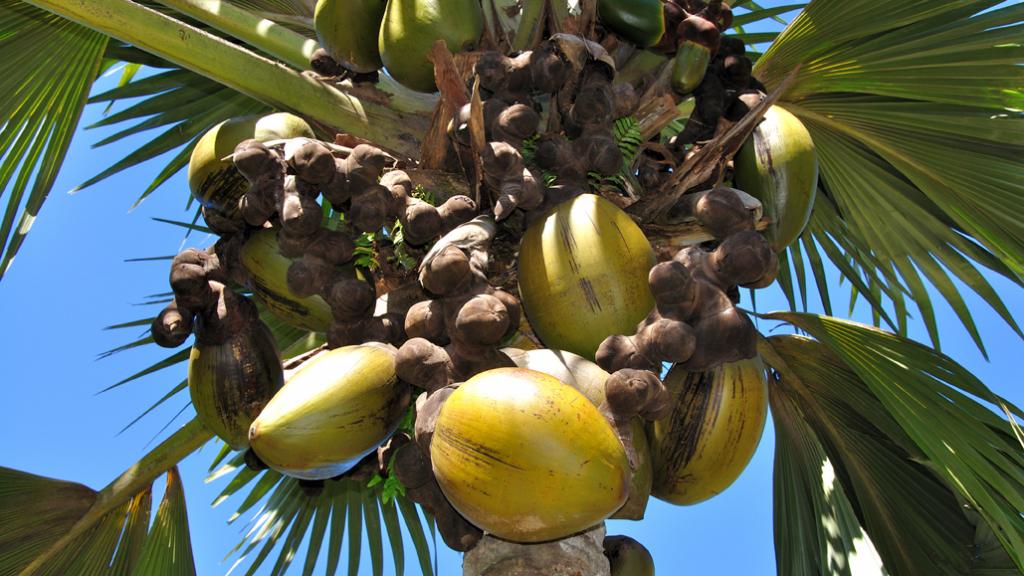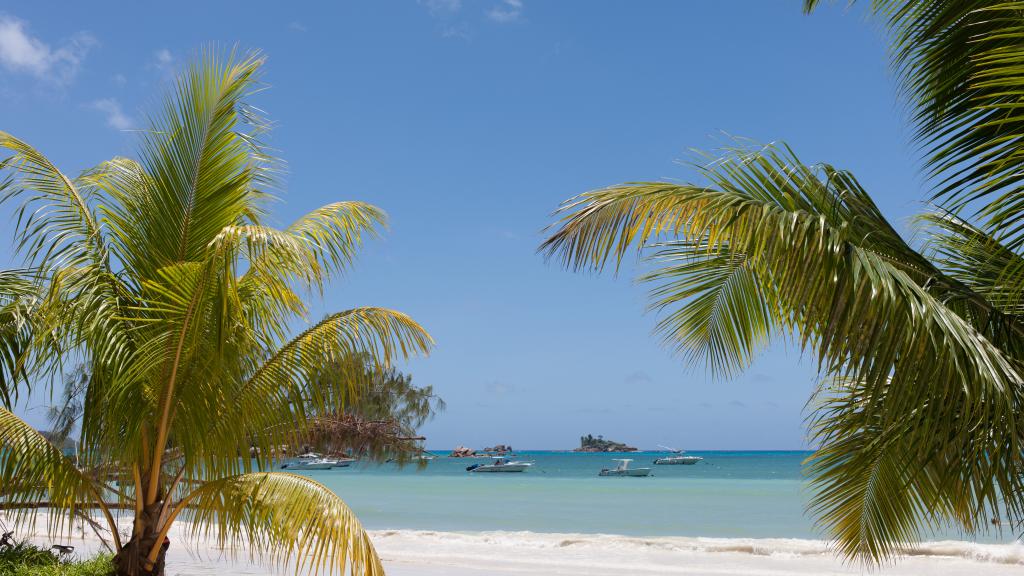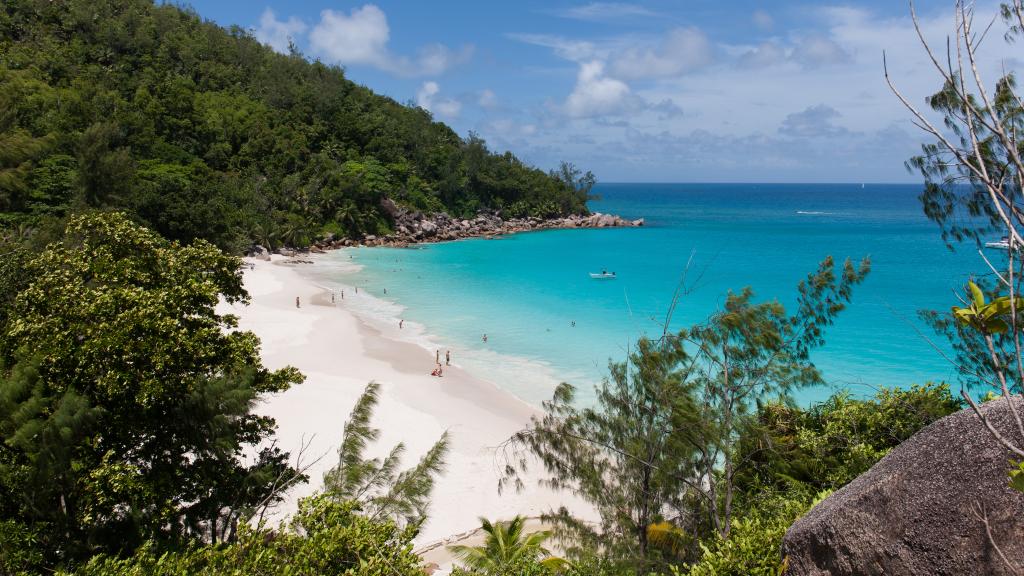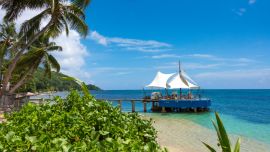General
Anyone travelling by boat from Mahé to Praslin, which is located around 37 km north-east of the main island, will notice a towering hilly landmass from the sea, which appears to be bright green and rises up on the horizon. Passing by the island's southern coast, you will come to a wide, natural bay, where Lazare Picault, who discovered the island in 1744, had anchored his ship before going on to explore Mahé. He immediately named Praslin the "Ile des Palmes", not knowing at the time that he had just come across the Coco de Mer Palm, one of the rarest and most unusual plants in the world.

In terms of population and physical size, Praslin is the second-largest island in the Seychelles with around 8,000 permanent residents. Mahé, by comparison, is the most heavily-populated with around 77,000 inhabitants. Offering the second-highest amount of holiday accommodation in the Seychelles as well, Praslin welcomes tourists from around the world, who come here to enjoy the unique vegetation, the beautiful beaches, and the crystal-clear water that surrounds the island. Politically, Praslin is divided into two districts: Grand Anse and Baie Sainte Anne.
The usual way to reach Praslin is by means of a propeller aircraft from Mahé, which only takes a fifteen minutes. The islanders, besides tourism, make a living from agriculture and fishing. Praslin is thankfully not particularly crowded, and has managed to retain its charm, ensuring that anyone who loves peace and nature will certainly want to come here during their stay. There are many views to enjoy, especially during a hike or tour, which will take your breath away. These include fine, sandy beaches with crystal-clear water, dense jungles, palm trees, takamaka trees, waterfalls, and much more. Compared to Mahé, the island consists more of rolling hills than towering mountains, with Praslin's maximum elevation, the Fond Azore, reaching just 367 metres. This however has the added bonus that it does not rain as much on Praslin as it does on Mahé.
The shallow Ste. Anne Bay is home to a small port that serves the ferry services from Mahe and La Digue. In the same town, two kilometres north of the landing point, there are churches, hospitals, banks, a post office, a gas station, and a school, mini markets, and car rentals. The majority of accommodation on Praslin consists of large hotels. The island is slightly lacking in terms of guest houses near the beach, but you’ll find quite a few luxurious hotels to enjoy instead. Anse Volbert has also emerged as a tourist centre, but thankfully in an unobtrusive manner.

The island's main attraction is the UNESCO World Heritage Vallée de Mai, a first-class botanical sensation containing the aforementioned Coco de Mer, which attract many visitors on a daily basis. A walk through the jungle-esque park leaves you with a taste of how the island's first visitors might have felt. Besides plants, rare birds such as the Raven Parrot call this reserve their home.
The north-east and the west coasts of the island are protected by extensive coral reefs and boast long, sandy beaches. Anse Lazio and Anse Georgette often rank among the most beautiful beaches in the world, sometimes even in the Top Ten of various lists. In addition, Praslin's 12 x 5 km frame is surrounded by islands such as Cousin, Curieuse and St. Pierre, which you can visit as part of a number of great day trips.


